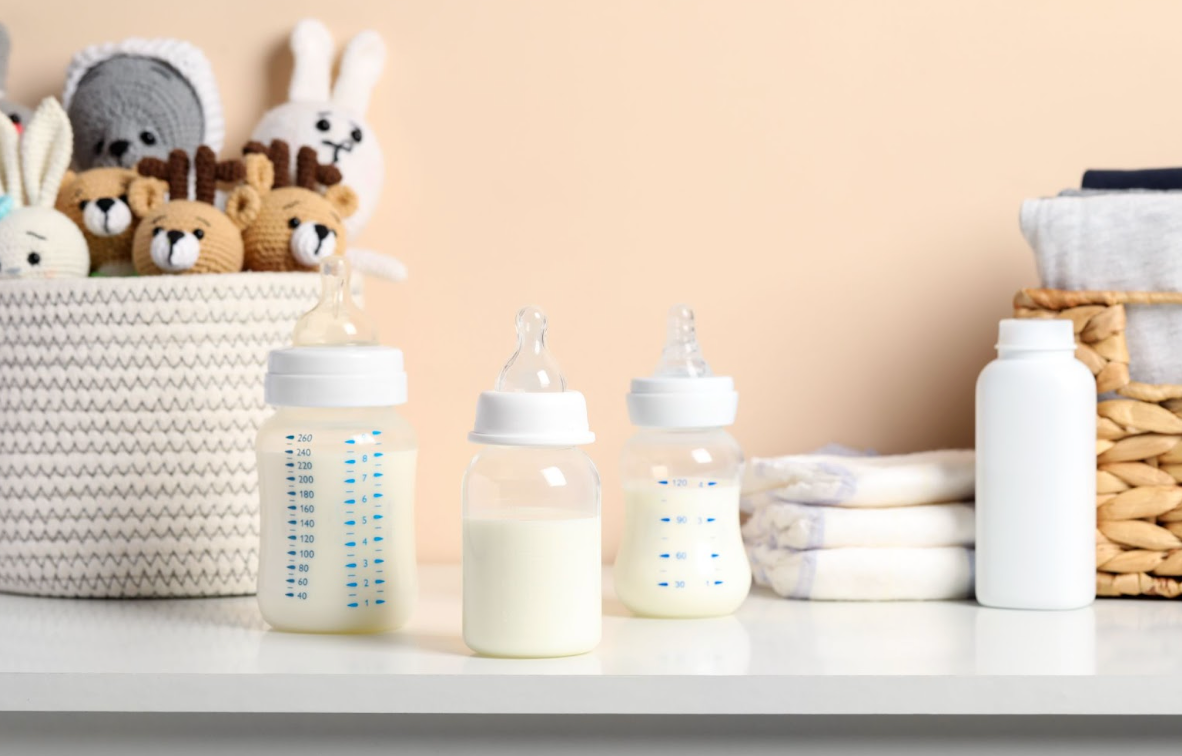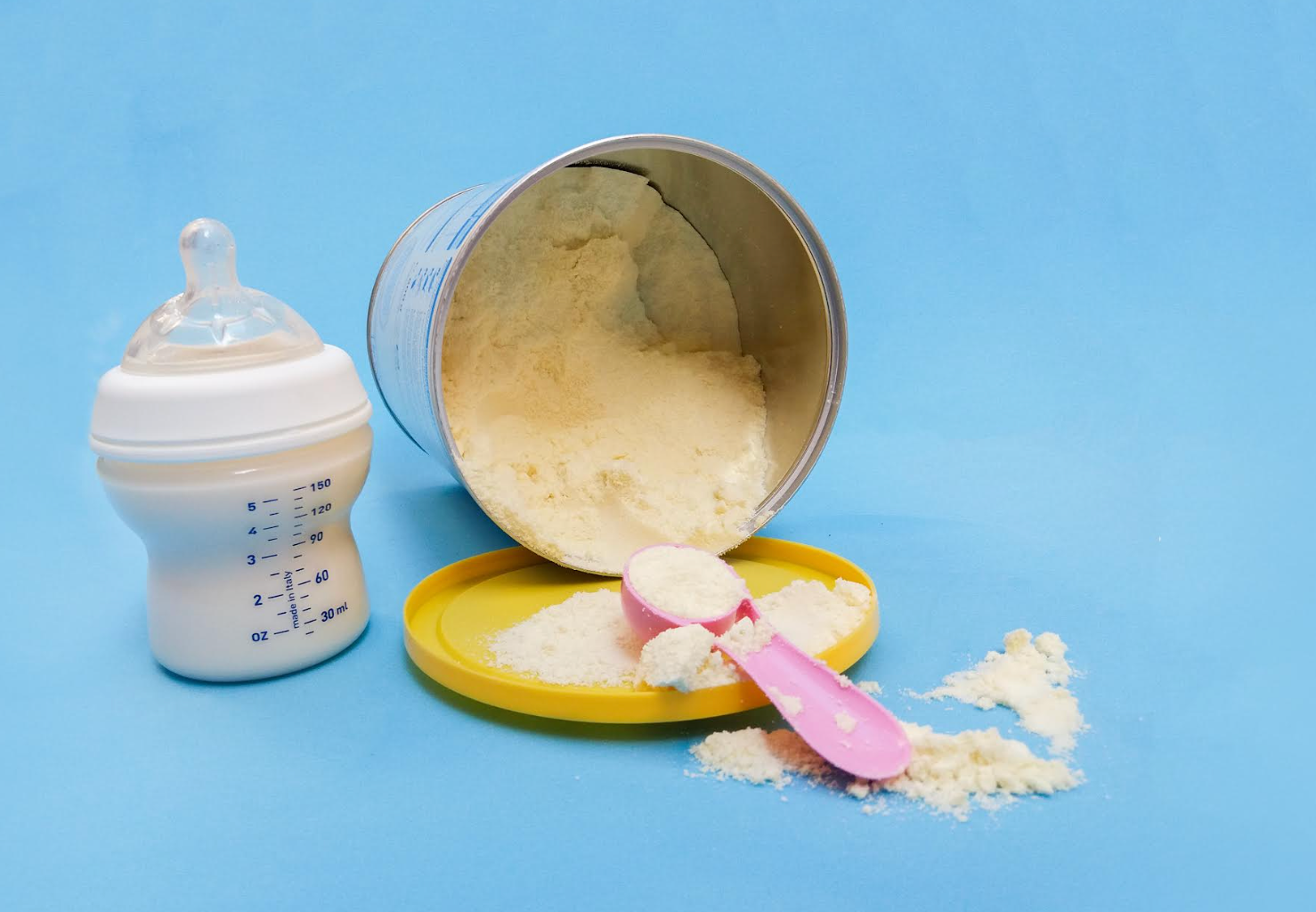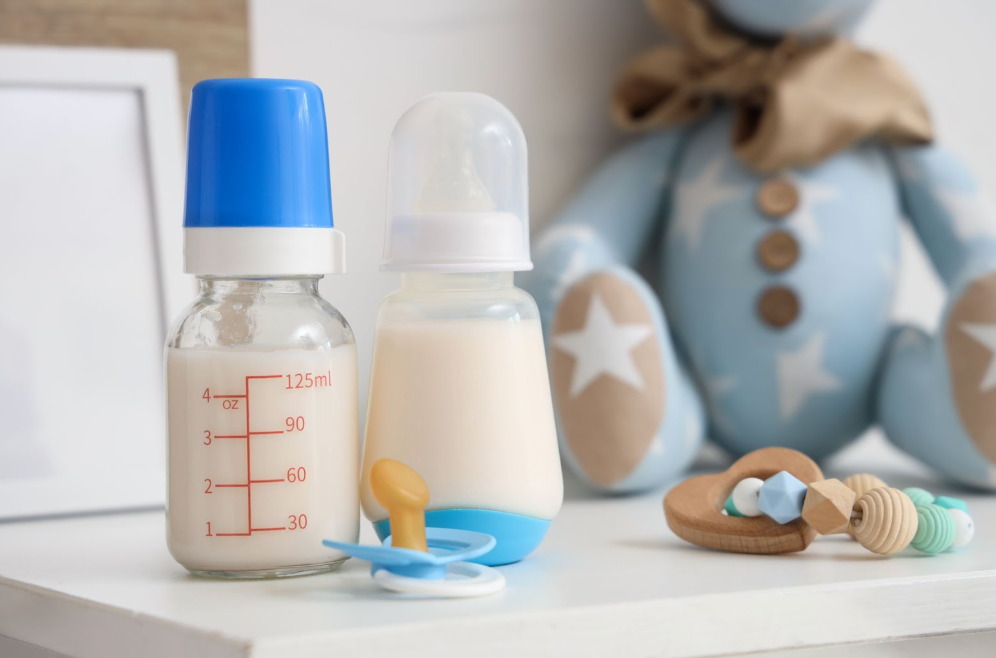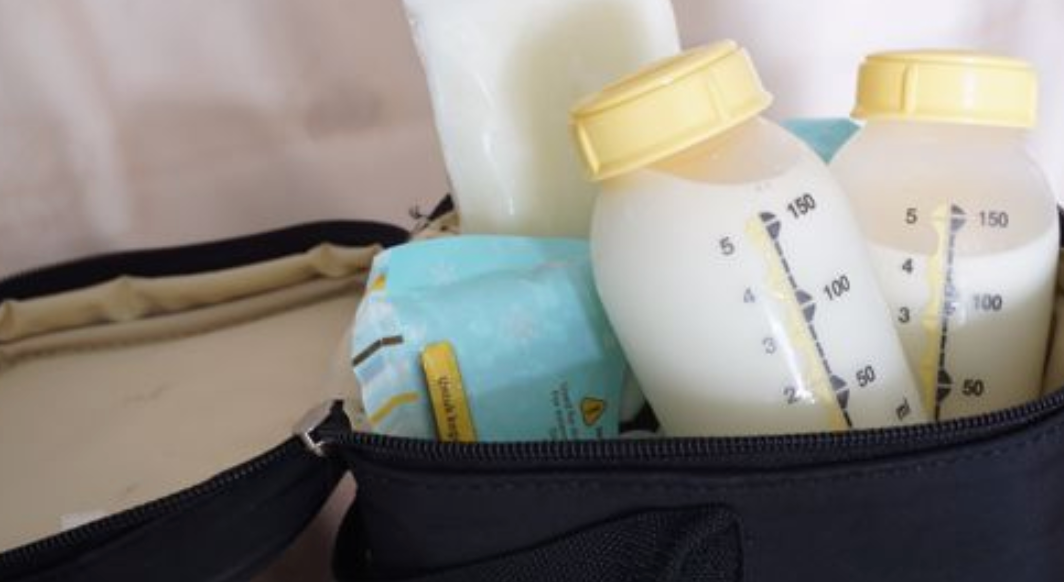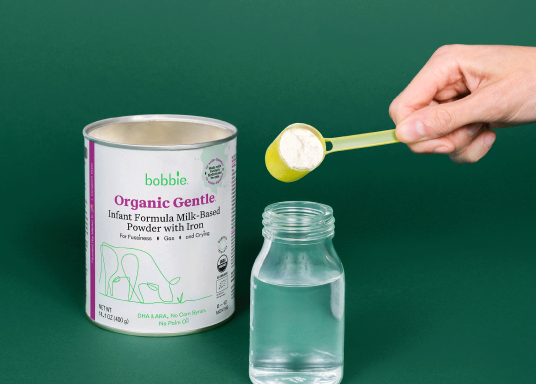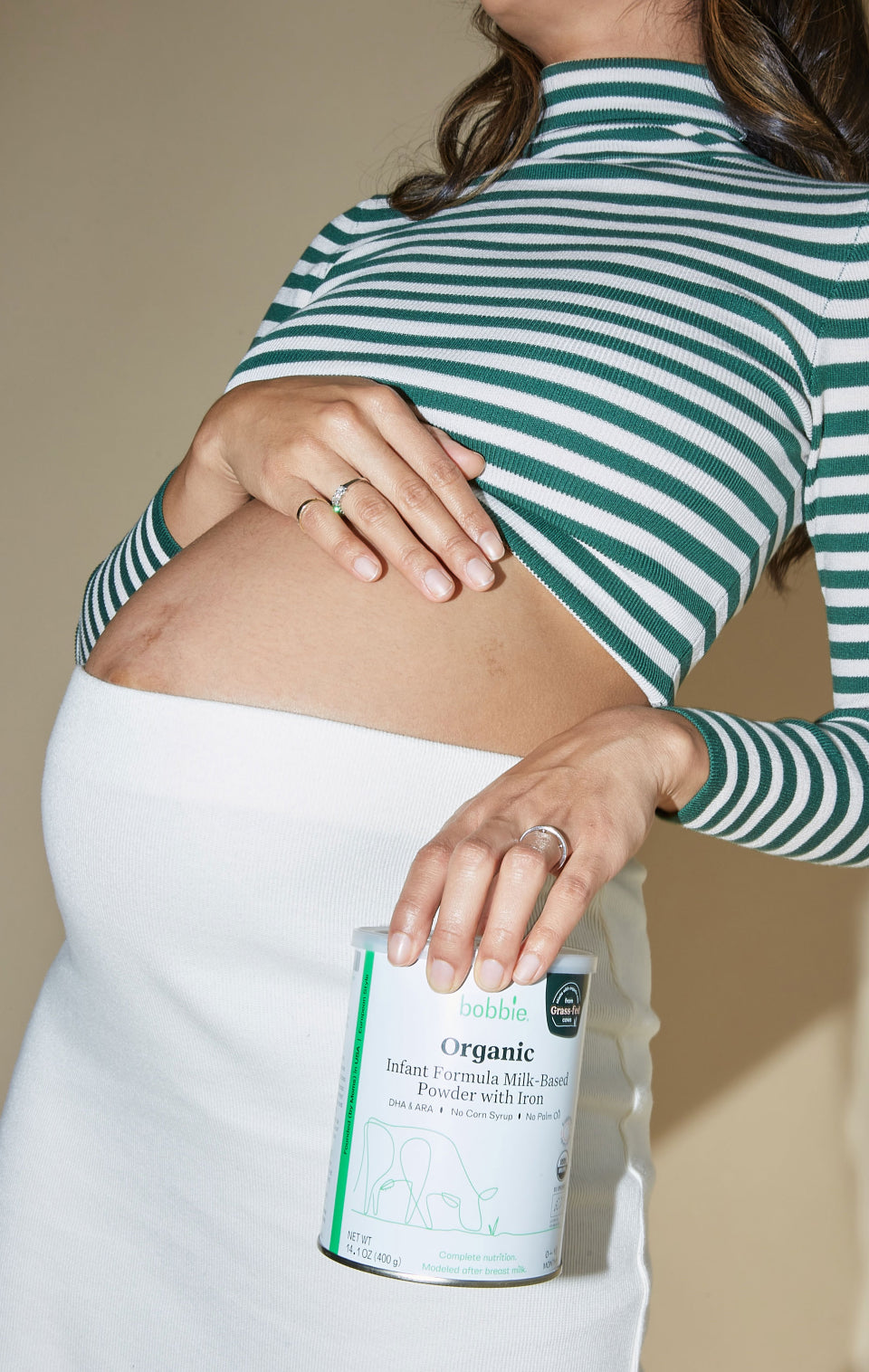Published October 17, 2023

Crafting a Healthy and Balanced 9-Month-Old Feeding Schedule
Nine months old & starting to explore the world of solids and a consistent feeding schedule—so exciting! A consistent schedule helps to ensure your baby is hitting the mark when it comes to nutrition and developing healthy eating habits. Let’s deep dive into how to create the best feeding schedule for your 9 month old!
How Much to Feed 9 Month Old: Bottles, Breastmilk, & Introducing Solids
Your baby’s taste is developing! They’re exploring textures, flavors, and all the joys that come with food. Keeping the primary source of nutrition as formula (around 24-32 ounces per day), now is a great time to start integrating solids into their diet. Baby-led weaning—the process of diversifying the solids (fruits, veggies, grains, and meat) helps your baby develop essential motor skills, as well as provides the fun of exploring a variety of foods.
Sample Feeding Schedule for a 9-Month-Old
So… how much are you supposed to feed? A good rule of thumb would be 2-3 meals a day, along with their daily 24-32 ounces of formula/breast milk! Don’t fret: we put together a sample feeding guide for you below:
Morning:
Breakfast is business as usual- start the day with breast milk or formula. Bottle feeding? 6-8 ounces is a good amount.
Mid-Morning:
A midmorning snack? A little solids action. Offer a small serving of oatmeal, mashed banana, a baby-friendly cereal, soft-cooked eggs or yogurt. We recommend 2-4 tablespoons of solid food.
Lunch:
Back to the formula/breast milk! Follow up with a serving of whatever is on your lunch plate (around 2-4 tablespoons). There are certain baby foods to avoid. These can be choking hazards like nuts, popcorn, uncut grapes, large berries, or anything sticky like peanut butter.
Afternoon:
Breast milk/formula feed as usual.
Dinner:
Dinner can consist of 2-4 tablespoons of solid foods like chopped, soft-cooked vegetables, rice, or pasta.
Bedtime:
Finish the day with a final breastfeeding or formula feed. What a day!
Bobbie infant formulas are clean, EU-style infant formulas that meets all FDA requirements. They are complete nutrition, milk-based powder, modeled after breast milk and is easy on tummies. They are all non-GMO and do not have corn syrup, palm oil, or maltodextrin. Shop Bobbie today!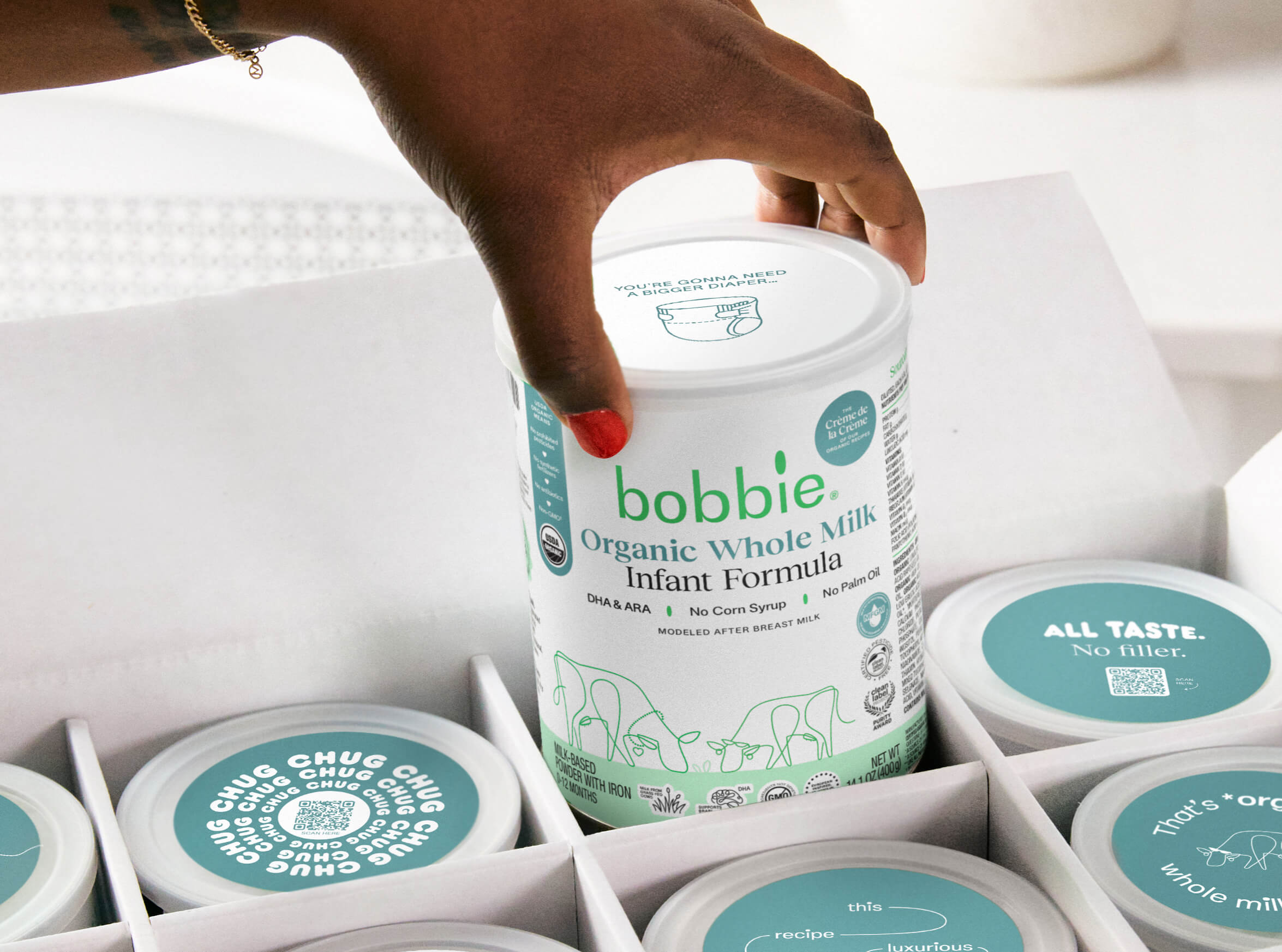
Shop Bobbie Baby Formula

Introducing Solids: 9-Month-Old Feeding FAQs
Adjusting Portion Sizes and Meals a Day
Keep in mind that all babies are unique and their appetite may vary. It's essential to be flexible and responsive to your baby's cues. Some days, they might eat more, while on others, they may eat less. Always prioritize breastfeeding or formula feeds as the primary source of nutrition and consider solid foods as complementary.
As your baby grows, their portion sizes will increase gradually. You can monitor your baby's cues for hunger and fullness to determine when they need more or less food. Signs of hunger may include increased interest in food, reaching for the spoon, or opening their mouth eagerly. Conversely, turning away from food or losing interest may indicate fullness.
Balancing Breast Milk or Formula with Solids
Lead with breast milk or formula prior to adding in solids—these provide essential nutrients and the calories necessary for your baby's continued growth and development.
On average, a 9-month-old baby typically needs 24-32 ounces of breast milk or formula per day, depending on their individual needs. This amount can be distributed across multiple feeds to ensure they receive adequate nutrition while transitioning to solid foods.
Hydration and 9-Month-Olds
Do babies drink water? The introduction of solids is the perfect time to introduce sippy cups + open cups with water during meals! Offering sips of water helps keep your baby hydrated and gets them used to drinking from a cup—an essential developmental skill.
Sign up to get the scoop on feeding, sleep, poop, and so much more. By singing up for email, you are to receive marketing emails from Bobbie and can manage your email preferences or unsubscribe at anytime

Your go-to resource for all things new baby.
Common Concerns: How Much to Feed a 9-Month-Old
Let’s talk portions. Be flexible and responsive to your baby’s appetite—every baby is different! Start with small servings of solids and increase gradually as your baby shows interest and readiness for more.
It’s completely normal if your baby is more interested in breastfeeding/formula feeding right now. You may also find that they are more interested in playing with their food than eating it! This is actually extremely beneficial for their development—their solid food intake will increase naturally over time. In the meantime, sit back, relax, and enjoy the childlike whimsy of exploring the texture of noodles.
To ensure a balanced diet, diversity their solids! Incorporate fruits, vegetables, grains, and lean proteins into their meals. It’s always a good idea to ask your pediatrician for guidance around common allergens such as nuts, eggs, milk, and fish.
The Role of Sleep in the Feeding Schedule
Sleep plays a significant role in your baby's feeding schedule and overall health. At nine months old, many babies will be sleeping through the night, allowing them to have a consistent and healthy feeding routine during the day.
Ensure that your baby is well-rested as overtiredness can affect their appetite and willingness to eat. Stick to a regular sleep and nap schedule and create a calming bedtime routine to promote restful sleep. A well-rested baby is more likely to eat well during the day.
Consulting a Pediatrician: Your Primary Source of Guidance
While we’re all about lending a helping hand—this sample feeding guide isn’t medical advice. We recommend consulting with your pediatrician as your main source of guidance for your baby’s needs. They’ll offer personalized recommendations based on your baby’s growth, developmental stage, and can address specific concerns you may have.
Feeding Schedule for 9 Month Old
Long story short: In conclusion, establishing a healthy and balanced feeding schedule for your 9-month-old is an exciting journey towards independence and developing healthy eating habits. Remember to prioritize breast milk or formula as the primary source of nutrition, continue to introduce solids through baby-led weaning, and be responsive to your baby's cues. Consult your pediatrician for guidance, and enjoy this special time of exploration and growth with your little one!
Bobbie infant formulas are clean, EU-style infant formulas that meets all FDA requirements. They are complete nutrition, milk-based powder, modeled after breast milk and is easy on tummies. They are all non-GMO and do not have corn syrup, palm oil, or maltodextrin. Shop Bobbie today!
Shop Bobbie Baby Formula

The content on this site is for informational purposes only and not intended to be a substitute for professional medical advice, diagnosis or treatment. Discuss any health or feeding concerns with your infant’s pediatrician. Never disregard professional medical advice or delay it based on the content on this page.









